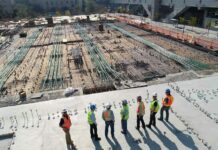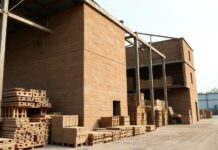The UAE’s massive economic and financial stimulus packages released to mitigate the economic impact of the coronavirus disease (COVID-19) pandemic are seen to significantly benefit the property sector in the long-term, according to real estate investment advisory firm Medallion Associates, as the local industry continues to show resiliency amid challenging market conditions.
Supporting the government’s efforts in highlighting investment opportunities in Dubai’s real estate market worldwide, Medallion Associates also revealed that it is already in an advanced phase of processing AED 5.5 billion worth of foreign real estate investments funds to be deployed in a couple of landmark Dubai property projects during this pandemic – proving the sustained interest of global investors in the sector amid the crisis.
“Although we are yet to measure the full effects of the pandemic on real estate, we are confident that the domestic industry will overcome unprecedented hurdles on the back of the UAE Government’s timely and swift actions to address the crisis. The substantial economic and financial stimulus packages as well as the key steps taken particularly by the Dubai Government, the UAE Central Bank and other institutions have brought and will continue to bring enormous benefits to the sector and fast-track its recovery while sustaining its ascent. As it is, the government support has already spurred the much-needed activities within the industry, priming, among others, future location investment choices to attract more investors,” Masood Al Awar, Chief Executive Officer, Medallion Associates, said.
Besides the stimulus packages earlier deployed by the UAE Government, which were also aimed at boosting business sentiments and supporting market liquidity, the Central Bank of the UAE unveiled its AED 10-billion comprehensive Economic Support Scheme for affected retail and corporate customers as well. Abu Dhabi Executive Council, for its part, earmarked AED 3 billion for its SME Credit Guarantee Scheme, while the Dubai Government launched its AED 1.5-billion economic stimulus package. These moves are expected to result in cumulative positive outcomes within the emirates’ property market.
The growth outlook on the UAE’s real estate has remained upbeat, particularly in Dubai market, despite the pandemic’s impact. During the first quarter of 2020, Dubai’s real estate sector performed well at 8 per cent economic contribution. Further, the real estate construction contracts in the emirate during the period stood at AED 11.74 billion, accounting for 34 per cent of the total value of contracting contracts concluded in the country.
“Real estate laws and regulations have shielded the market from the full impact of COVID-19, with the industry being reinforced further by the measures taken by property developers such as financing programs for clients, partners and tenants as well as economic aid packages. The increased adoption of next-generation technologies, including artificial intelligence and virtual reality, and transformative business patterns will also help the Dubai and Abu Dhabi property markets to emerge stronger post-pandemic. Dubai is an attractive destination for investors looking to buy prime global properties, and this positioning will remain so after the crisis and beyond,” Al Awar concluded.




























